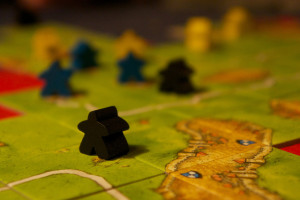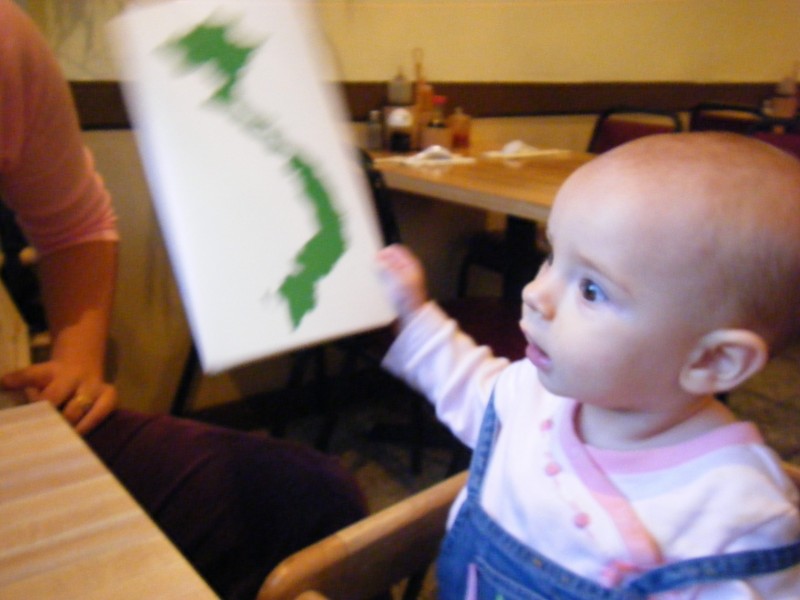Baby…we’ve been alone too long.
Let’s be alone together –
let’s see if we’re that strong.
– Leonard Cohen, “Waiting for the Miracle”
I forgot about Lent this year. I forgot about it even being a thing on the calendar that happens. And while I might be excused for my forgetfulness – I’m not Catholic and didn’t grow up Catholic or in a liturgical tradition – I have to admit that being oblivious to it caught me off guard.
I only remembered it when, one particular Wednesday in February, while at the supermarket – a bottle of wine in one hand and my iPhone in the other – a woman passed me with an ash cross smeared across her forehead. Hazily noting her gray smudge, I was seized by, well, not guilt (“Protestant Guilt” is a topic for another time), but a sudden burst of surprise.
I paused in the aisle, looked at the bottle of wine and a curious ambivalence surged through me. On one hand, given the pace of my life the past few months, I knew I could benefit from a contemplative period of intentional, spiritual reflection, if not also a detox and fast from you name it.
And then I decided to forego Lent. I decided not to indulge myself this year.
Right, indulge myself. I know. That seems implausible. It contradicts the spirit of the season, on one hand. But let me explain.
Ever since I first learned about Lent in my mid-to-late-twenties, I wanted on board the Lent train. Not even wanted on board. Knew I was already on board – one of its passengers.
After all, for as long as I can remember, I’ve adored all the wilderness imagery evocative of the season. Whether the spare, stark pictures of U2 on its Joshua Tree album, T.S. Eliot’s “The Wasteland,” or every Tatooine scene in the Star Wars films, desert wanderings and  wilderness imagery and references have always spoken to something deep at the heart of me.
wilderness imagery and references have always spoken to something deep at the heart of me.
For as long as I’ve known about and observed Lent, I’ve delighted, too, in its meditations on death and mortality. My lonesome inner-adolescent – still carrying a torch for the bummed out musings of The Smiths, The Cure, and Tears for Fears – can’t resist feeling an albeit maudlin affection for the overtly melancholy tone of the season.
So, for many years, I’ve anticipated – with a kind-of adult version of the excitement kids possess for Christmas – that one Wednesday towards winter’s end, when the church lights go dim and the organ inclines towards slow songs in a minor key. More than that, however, I think I’ve reveled, too, in how Lent affords me – a shy, introverted individual by nature – righteous permission to avoid the hustle of the marketplace and everyone passionately competing for attention from one or another soapbox there. While it’s certainly not written into its script, or part of The Book of Common Prayer, Lent enables a guy like me to justify stealing away into literal or metaphorical prayer closets, solely in the interests of escaping any undesirable or annoying chaos or hullabaloo that rubs me the wrong way. And always under the guise of a spiritual endeavor.
I know it must sound strange, on one hand. Many good-hearted, pure-intentioned loved ones and mentors admirably and enviably enter into this contemplative season. It’s only recently that I began sheepishly second-guessing my impulses, my fine-tuned behavioral patterns and the creature comforts these serve.
I blame happiness. Joy. Will go out on a limb and accuse Love of revealing a shortsightedness on my part. I’ll also blame an altogether bewildering and, for me, mostly uncharted territory I only know to name as Relationship.
 Taken together, these, for me, add up to prove an altogether different kind of wilderness. Actual wilderness, perhaps. The kind that Tolkien’s hobbits dread, that explorers for centuries have strived to tame, erase, or domesticate. Relationship, for me, has long remained a region too frightening to bravely explore – even, regrettably, while “in a relationship” with someone. Relationship too frequently proves thoroughly terrifying ground, a terrain more distressing than any postcard-esque desert landscape or overabundance of welcome monastery silence. More than any solo adventure I’ve undertaken, relationship leaves me thoroughly exposed, and so also at perpetual risk, often underdressed for its dangerous and unpredictable weather patterns, unprepared for its unexpected turns, its steep climbs, and deep, shadowy valleys.
Taken together, these, for me, add up to prove an altogether different kind of wilderness. Actual wilderness, perhaps. The kind that Tolkien’s hobbits dread, that explorers for centuries have strived to tame, erase, or domesticate. Relationship, for me, has long remained a region too frightening to bravely explore – even, regrettably, while “in a relationship” with someone. Relationship too frequently proves thoroughly terrifying ground, a terrain more distressing than any postcard-esque desert landscape or overabundance of welcome monastery silence. More than any solo adventure I’ve undertaken, relationship leaves me thoroughly exposed, and so also at perpetual risk, often underdressed for its dangerous and unpredictable weather patterns, unprepared for its unexpected turns, its steep climbs, and deep, shadowy valleys.
That bottle of wine I was holding on Ash Wednesday? I was buying that for dinner later, to drink with a woman I’ve spent nearly every Wednesday with since mid-August of last year. In fact, somehow, sometime last autumn, my Wednesdays earned the status of Friday, solely given the degree of excitement with which I look forward to seeing this person.
So, you might pardon me if ashes and meditations on my mortality were the last thing on my mind this year.
When we first started talking late last summer, we certainly didn’t see landing here nearly eight months later, together, in a strange, wild place called Relationship. One evening, we simply and unsuspectingly engaged in a memorable conversation. We decided to pick up where we left off a couple weeks later. The conversation continues today.
Meanwhile, I can’t help trusting that my otherwise predictable flights into the desert – the oasis of those welcome, lush silences, and the “do-able,” time-limited fasts from whatever – can wait for now. These aren’t going anywhere. They’ll rest ready for me if I need to return to all things overly familiar down the line.
That night, as I walked towards the checkout counter, the mystifying opening lines of Mary Oliver’s “Wild Geese” poem came to mind:
You do not have to be good.
You do not have to walk on your knees
for a hundred miles through the desert, repenting.
You only have to let the soft animal of your body
love what it loves…
I wondered then – bottle of red wine in my hand on Ash Wednesday, longing to lean into the good evening ahead – do I have what it takes? Can I find it in me to bravely, wildly, and only love what I love?
Something unfamiliar whispers that it’s worth the risk. That the journey could prove epic.









